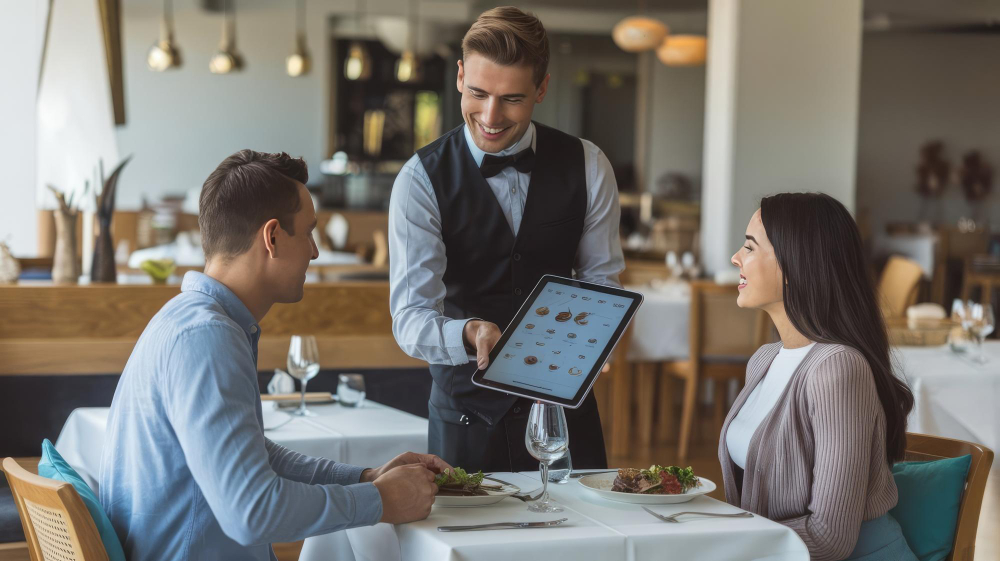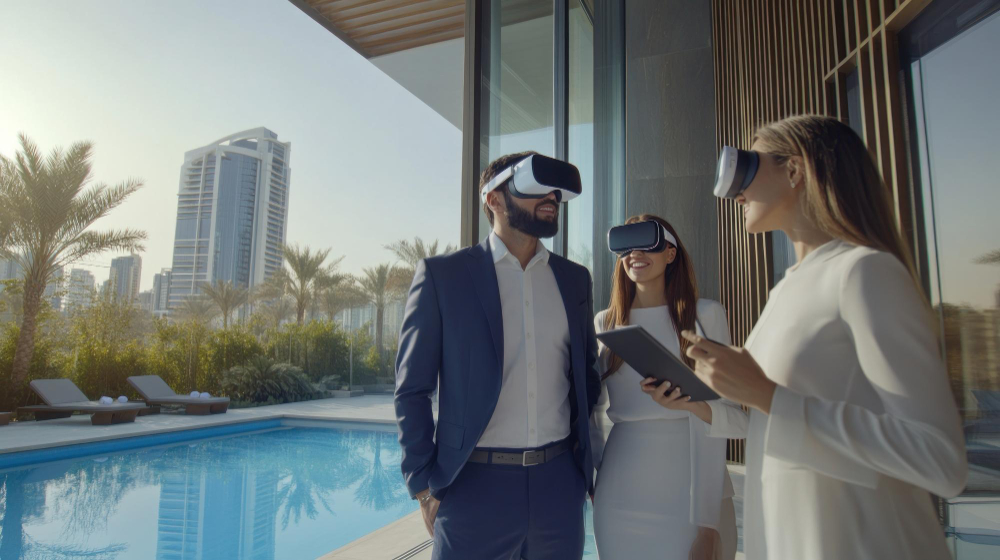Hospitality and Social Media in India: Engaging with Guests and Building Brand Loyalty
In the aftermath of the pandemic, Taj Hotels in India exemplified the power of social media as a vital tool for hospitality brands. Through their ingenious use of Twitter, amidst challenging times, Taj Hotels engaged their audience with DIY summer appetizers, skincare routines, and glimpses into their renowned Jiva Spa. This innovative approach not only highlighted their specialties but also demonstrated the transformative impact of social media on customer engagement, showcasing its integral role in the hospitality industry’s fabric.
India’s social media ecosystem, with over 500 million users and diverse demographics, presents unparalleled opportunities for hotels. Platforms like Facebook, Twitter, and Instagram, predominantly accessed via mobile devices, offer direct engagement avenues with potential guests. This enables personalized communication and targeted promotions, empowering hotels to craft immersive experiences and leave lasting impressions on prospective guests even before their arrival.
The Power of Social Media for Hospitality in India
A. Enhancing guest engagement and interaction
- Prompt Responses to Guest Inquiries and Feedback: Hospitality brands in India utilize social media platforms like Twitter, Facebook, and Instagram as direct channels for addressing guest inquiries and feedback promptly. This proactive approach fosters transparency and responsiveness, enhancing the overall guest experience and building trust in the brand. A delayed response can leave a negative impression, potentially damaging the brand’s reputation and discouraging future bookings.
- Tailored Messages, Polls & Contests: Moving beyond generic responses, personalized messages, polls, and contests tailor engagement to specific guest preferences and interests. This creates a sense of community and belonging, differentiating the hotel from competitors offering only standardized service. Recognizing and catering to individual needs strengthens guest loyalty and encourages positive word-of-mouth promotion.
- Guest Advocacy: Encouraging guests to share their experiences using relevant hashtags and mentions leverages the power of user-generated content. Authentic guest testimonials resonate more deeply with potential customers than traditional marketing. Sharing positive experiences boosts brand awareness, builds trust, and attracts new guests seeking similar experiences.
Read Also: The Latest Buzz in Hotel and Tourism Education

B. Building brand awareness and reputation:
- Consistent Brand Presence: A consistent narrative paints a clear picture of the hotel’s values and personality. Engaging content tailored to each platform’s strengths, be it Instagram stories for fleeting glimpses or Facebook Live events for in-depth exploration, keeps the brand top-of-mind and expands its reach. This consistency fosters trust and a sense of reliability, which is crucial for attracting new customers and building brand loyalty.
- Showcasing Unique Experiences: Show, don’t tell. Let guests experience your brand virtually through immersive content. Showcase your hotel’s essence through captivating visuals and engaging narratives. Highlight your unique offerings, from stunning architecture and local experiences to exceptional service and exclusive amenities. This authentic storytelling differentiates your brand, leaving a lasting impression and sparking curiosity in potential guests.
- Targeted Advertising: Targeted advertising ensures your message reaches the most receptive audience. By showcasing offerings relevant to their needs and desires, you personalize the experience and demonstrate an understanding of your target market. This increases engagement and conversion, bolstering your reputation as a brand that cares about its guests’ aspirations.
C. Fostering customer loyalty and advocacy:
- Loyalty Promotions: Go beyond generic discounts. Offer exclusive rewards and promotions specifically for loyal social media followers. This could be early access to special offers, personalized experiences, or even invitations to exclusive events. By recognizing their engagement, you create a sense of value and belonging, incentivizing continued loyalty and positive word-of-mouth.
- Acknowledging Guest Feedback: When you actively listen and respond to feedback, guests feel heard and valued. This builds trust and encourages them to become vocal advocates, knowing their voice matters. Negative feedback handled transparently can even turn skeptics into loyal supporters, impressed by your commitment to improvement.
- Encourage guests to become brand advocates: Encourage guests to share their positive experiences on social media using relevant hashtags and mentions. When guests share their positive experiences, they become credible brand ambassadors. Their genuine recommendations resonate more deeply with potential customers than traditional marketing. This organic advocacy attracts new guests, amplifies your brand reach, and fosters a loyal community around your hotel.
Read Also: Key 2024 Hospitality Trends to Look Out For
Case Studies of Successful Social Media Strategies in Indian Hospitality
To gain insight into how hospitality brands in India utilize social media and the strategies employed to enhance engagement and foster loyalty, let’s explore case studies that exemplify these practices.
1. Taj Hotels:
Taj Hotels, a prominent luxury hotel brand in India, boasts a rich heritage from its inception in 1905. With over 93 hotels across 55 locations nationwide and an additional 16 international properties, Taj Hotels exemplifies elegance and tradition in the hospitality industry.
Taj Hotels‘, Hospitality and social media presence embodies elegance and tradition, accentuating its rich heritage and enticing destinations. #MyTajCollection is an interactive campaign inviting guests to share memorable moments at Taj properties. Guests enthusiastically shared their experiences using the hashtag, generating a wealth of user-generated content. Taj curated these submissions into captivating posts and videos, celebrating the diverse experiences offered at their hotels, resorts, and palaces. This authentic content served as testimonials and inspired others to create their memories at Taj properties.
2. The Oberoi Hotels & Resorts:
The Oberoi Hotels and Resorts, part of The Oberoi Group established in 1934, boasts a portfolio of 32 luxury hotels and Nile Cruisers across seven countries. Renowned for their commitment to excellence, personalized service, and environmental stewardship, The Oberoi Hotels and Resorts uphold a legacy of unparalleled hospitality and contribute significantly to conservation and philanthropic endeavors globally.
The Oberoi Hotels & Resorts’ social media strategy is centered around showcasing its luxurious accommodations, impeccable service, and unforgettable guest experiences. Through platforms like Instagram, Twitter, and Facebook, they captivate audiences with visually compelling content, highlighting the opulence and elegance synonymous with The Oberoi brand. By engaging in personalized interactions and storytelling, The Oberoi Hotels & Resorts effectively convey their brand’s essence and allure, resonating with discerning travelers seeking refined hospitality experiences.
3. ITC Hotels:
ITC Hotels, with over 115 properties in 80+ destinations and six distinctive brands, seamlessly blends India’s hospitality traditions with globally acclaimed facilities and services. Embodying the essence of each destination, ITC Hotels prioritize authentic, indigenous luxury experiences while upholding the principles of Responsible Luxury, ensuring harmony with the environment and society.
ITC Hotels demonstrates a robust social media strategy that aligns with its ethos of Responsible Luxury, emphasizing sustainability and responsible dining experiences. The partnership with Swiggy exemplifies this strategy, as ITC Hotels leverages social media platforms to promote their collaboration, highlighting eco-friendly initiatives and commitment to delivering unique culinary experiences. Through engaging content and partnerships, ITC Hotels effectively reaches a larger audience, enhancing brand awareness and fostering customer loyalty in alignment with their Responsible Luxury principles.
Read Also: Sustainable Hospitality Practices in India: A Deep Dive into Eco-Friendly Initiatives
4. Lemon Tree Hotels:
Lemon Tree Hotels Limited is a leading hotel chain in India, recognized for its extensive presence in the mid-priced hotel sector. With over 100 hotels across 64 destinations in India and abroad, Lemon Tree Hotels offers differentiated yet superior service offerings, catering to both upscale and mid-market segments.
Lemon Tree Hotels’ social media strategy targets young travelers, showcasing their vibrant atmosphere, trendy amenities, and engaging activities.
Lemon Tree’s social media strategy plays like a vibrant melody, targeting young travelers seeking more than just a room. Platforms like Instagram, Twitter, and Facebook come alive with visually stunning content showcasing their trendy amenities, engaging activities, and effervescent atmosphere. By actively engaging with its audience and highlighting its unique offerings, Lemon Tree Hotels goes beyond simply being “affordable.” They nurture a lively online community where travelers discover memorable experiences at accessible prices. This approach fosters brand loyalty and positions Lemon Tree as a destination for those seeking affordability without sacrificing a touch of excitement.
5. The Leela Palaces, Hotels & Resorts:
With a legacy spanning over three decades, The Leela Palaces, Hotels, and Resorts have established themselves as a premier collection of luxury hotels in India, boasting eleven award-winning properties in key destinations. From the vibrant capital city of New Delhi to serene locations like Udaipur and Kovalam, each Leela hotel offers a unique celebration of art, culture, and cuisine, coupled with bespoke services and immersive experiences that enchant even the most discerning global travelers.
The Leela Palaces, Hotels & Resorts’ social media strategy is characterized by luxury storytelling, emphasizing opulent accommodations, exquisite dining experiences, and personalized service. The brand leverages creative storytelling, strategic partnerships, and industry-first campaigns such as #PoloInThePinkCity and #LeelaEmpowers to connect with its target audience emotionally and drive brand preference. Additionally, initiatives like ‘Shefs at The Leela’ demonstrate the brand’s commitment to equity and empowerment, showcasing their dedication to social responsibility and community engagement.

Read Also: The Scope and Significance of Indian Islands in Hospitality and Tourism
Conclusion
Hospitality and Social media’s potential for India’s hospitality sector is undeniable. It serves as a powerful bridge to connect with guests, foster loyalty, and weave unforgettable experiences. From personalized responses to immersive storytelling, the opportunities are boundless.
Hospitality management businesses must embrace social media as a core element of their marketing and guest engagement strategies. By actively engaging with their audience, showcasing unique offerings, and implementing innovative campaigns, they can build a thriving online community and cultivate lasting brand loyalty.
As social media continues to evolve, its impact on the Indian hospitality industry is poised to become even more profound. By embracing its transformative power and strategically utilizing its diverse tools, hotels can unlock a world of possibilities, ensuring that every guest journey becomes a story waiting to be shared, liked, and experienced.
Read Also: The Rise of Hospitality in India: A Booming Industry with Endless Opportunities
FAQ
Which social media platforms are most popular among Indian hospitality consumers?
Facebook, Instagram, and LinkedIn reign supreme for hospitality consumers, followed by YouTube and Twitter.
What are some creative ways to engage with guests on social media?
Run contests, host Q&As, share guest stories, go behind the scenes, partner with influencers, and leverage platform-specific features like polls and live sessions.
How can hotels use social media to manage their online reputation?
Monitor reviews across platforms, respond promptly and professionally, use social media to showcase positive experiences, and encourage guests to leave positive reviews. This builds trust and proactively combats negative sentiment.
What are some examples of successful social media campaigns in the Indian hospitality industry?
Taj Hotels’ #TajTravelDiaries campaign used Instagram stories to showcase stunning destinations, while ITC Hotels’ #ResponsibleLuxury initiative highlighted sustainability efforts on Facebook, both resonating with their target audiences.
How can hotels measure the return on investment (ROI) of their social media marketing efforts?
Hotels can assess ROI through conversion tracking: website visits from social media leading to bookings, coupon code usage from campaigns, and direct messages converted to sales. Additionally, measuring brand awareness through reach, engagement, and sentiment changes can indicate overall impact.











